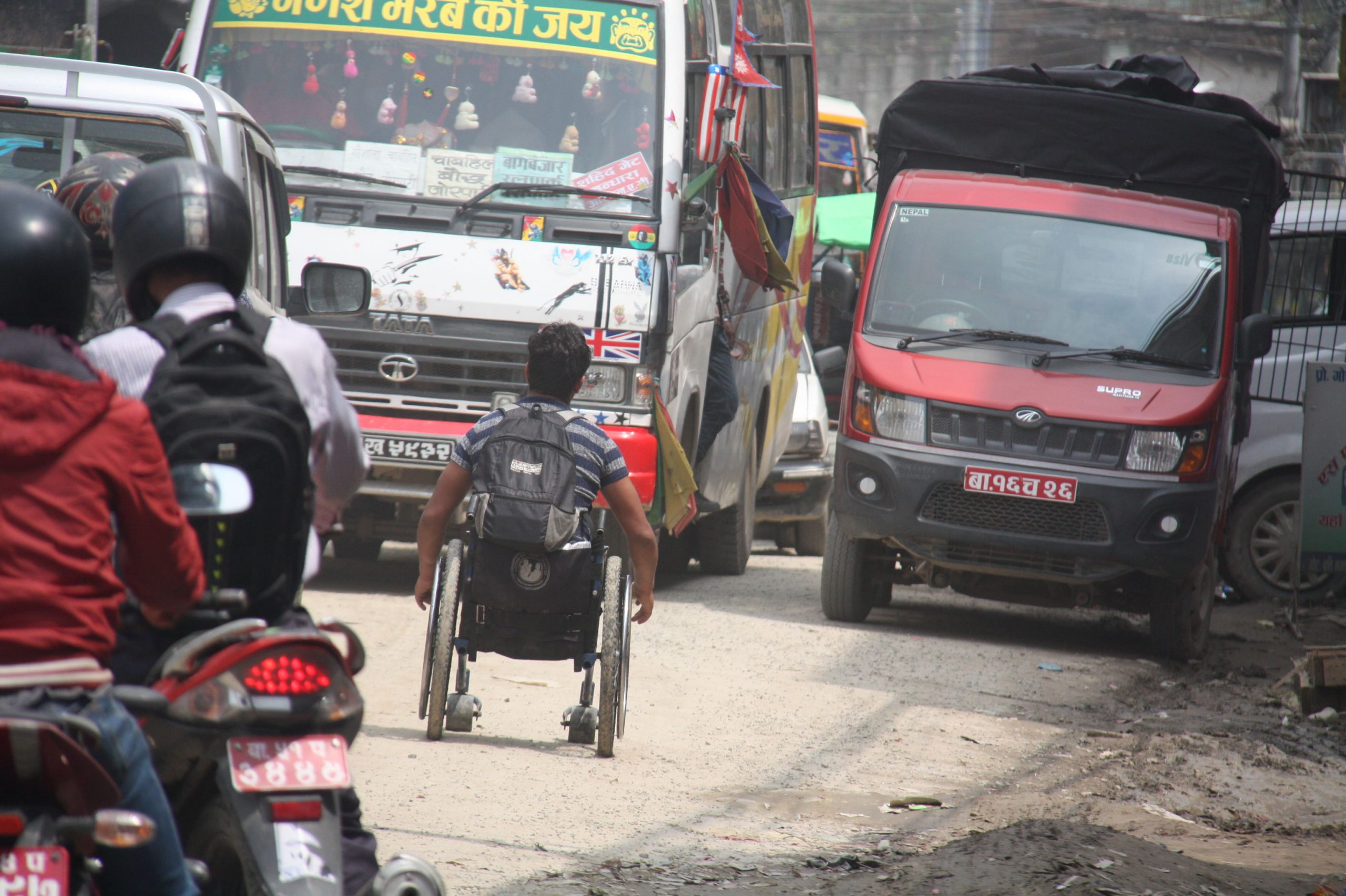
According to global estimates, persons with disabilities comprise approximately 15% of the world’s population, 85% of whom live in developing countries. In these countries, up to 80% of persons with disabilities of working age and that are willing to work are unemployed. Many factors contribute to this: misperception and discrimination, inaccessible offices, and lack of adjustments and adaptations. One element that prevents persons with disabilities from taking a job is difficulty getting there in the first place.
Sidewalks and crossings
Sidewalks in many low and middle income countries are either non-existent or in poor condition. There are few safe crossing points over roads, and where they exist, they are often blocked by raised kerbs and are rarely traffic light controlled. On top of this, the majority of vehicles do not readily stop for pedestrians, leading to many casualties. For those with visual impairments, tactile paving or audible crossings could help them navigate trusted routes, but these are lacking.
Public transport
Public transport in many countries is difficult for persons with disabilities, especially wheelchair users, to get onto. They have to rely on being lifted on and often pay additional fare for the space necessary to accommodate their wheelchairs. In low and middle income countries, public transport usually comprises privately owned buses, with little incentive to stop for passengers with disabilities as they will be able to carry fewer passengers and be delayed, meaning less income. There are often no specific locations for bus stops, so those with limited mobility are unable to wait in a known place, further reducing their chances of boarding a bus. Less visible disabilities such as being deaf or having an intellectual disability such as autism are usually not recognized by the passengers or staff operating public transport, often leading to misunderstanding and abuse.
Driving
Many countries do not have the systems in place to test the ability of drivers with disabilities and award them a driving licence. Modified disability vehicles such as motorised tricycles are often stopped by the police as unauthorised vehicles. There is a lack of awareness among traffic police in many cities about the mobility needs of persons with disabilities. It is also very difficult to find dedicated parking spaces, which, where they exist may be too narrow.
Humanity & Inclusion (HI) has tackled these mobility barriers as part of integrated projects to increase access to services, including employment, for persons with disabilities.
In one program in Senegal, an element of the program involved advocating for improved access to public transport. Having gained strong political leadership on the issue, the national policy on accessible transport was improved and Dakar’s largest bus operator agreed to increase the number of buses with ramps and priority seats for those with disabilities and train bus operator staff. Additionally, it employed 25 persons with disabilities as ticket sellers. The program led to over 700 more persons with disabilities having been registered as available for work and several hundred more have been employed or started training or apprenticeships.
In Vietnam, HI worked with the government to help it to implement systems to enable persons with physical disabilities to legally drive modified vehicles and take a test to obtain a driving license. The process involved close collaboration with many different stakeholders including government, vehicle maintenance companies, insurance companies, organizations of persons with disabilities, and many others. National technical standards were developed for modified vehicles. This allowed persons with disabilities to buy and modify vehicles legitimately that are recognized by insurance companies and the traffic police.
Access to safe, accessible transport is an enabler, opening up education and work opportunities. Addressing the safety and mobility of persons with disabilities and other marginalized groups is an important step to building a more equal society and also a more prosperous one.
Read more HERE.
Image: © Elise Cartuyvels/HI